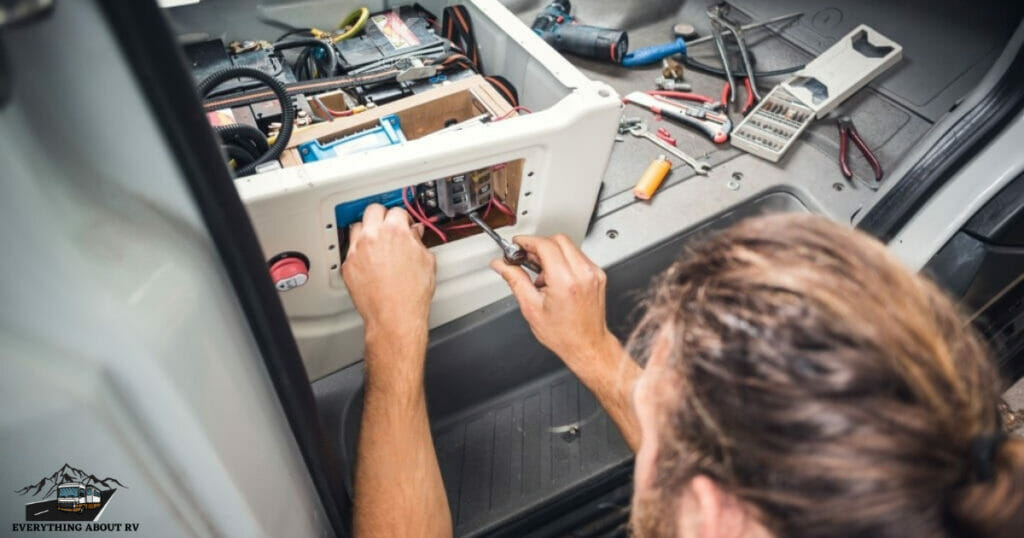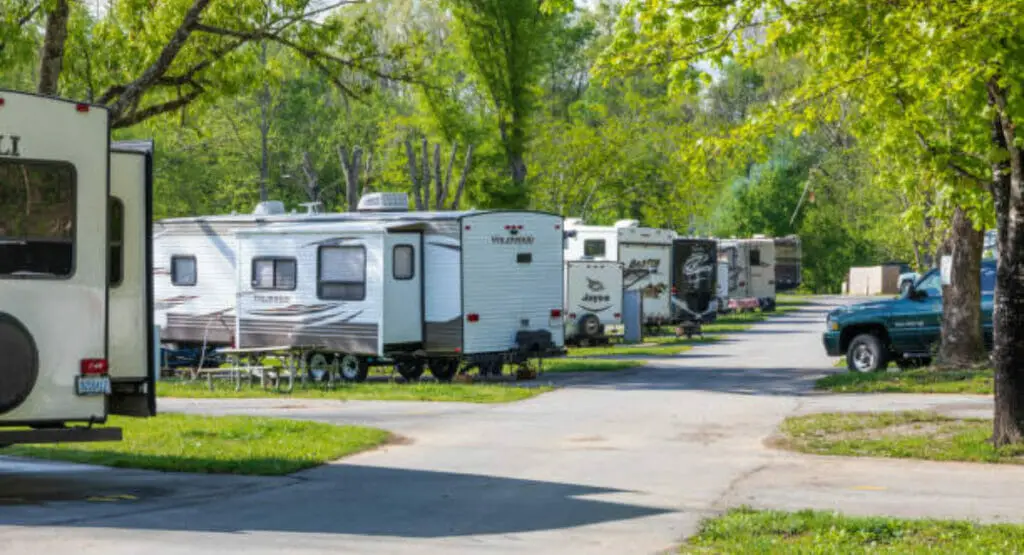Introduction:
If you have an RV or a camper, you may have noticed a weird stench coming from your battery. The odor is typically described as rotten eggs or sulfur, and it can be quite unpleasant. In this blog post, we’ll look at why your RV battery smell like rotten eggs and what you can do about it.
Ignoring the odor emanating from your RV batteries can have catastrophic implications. The stench indicates that something is wrong with your battery, and it is critical to solve the problem as soon as possible. If the problem is not addressed, it can cause damage to your RV and possibly dangerous circumstances, such as battery explosions.
The generation of hydrogen sulfide gas causes the smell of rotten eggs to emanate from your RV batteries. Hydrogen sulfides are produced as a consequence of the natural sulfation process that occurs when the battery charges and discharges. Propane is poisonous and combustible, and prolonged exposure might result in health problems. Yet, sulfation is not the only condition that can cause your RV battery to smell like rotten eggs. Overcharging, undercharging, and corrosion on the battery connections are all possible causes.
I. Causes of the Rotten Egg Smell
There are several reasons why your RV battery might be emitting a rotten egg smell. Let’s take a closer look at some of the most common causes:
1. Sulfuric Acid in the Battery:
Your RV battery contains sulfuric acid, a highly corrosive liquid. If the battery is repeatedly overcharged or discharged, the acid can boil and produce hydrogen sulfide gas. This gas has a pungent odor, similar to that of rotten eggs.
2. Hydrogen Sulfide Gas:
As previously stated, hydrogen sulfide gas is a natural byproduct of the sulfation process that occurs during the charging and discharging of the battery. However, if the gas is not properly ventilated, it can accumulate and produce the odor of rotten eggs.
3. Overcharging or Undercharging the Battery:
Overcharging or undercharging your RV battery can also result in the production of hydrogen sulfide gas and the resulting rotten egg odor. Overcharging the battery causes the acid to boil while undercharging the battery can cause sulfation, which results in the production of hydrogen sulfide gas.
While the smell of rotten eggs may indicate a problem with your RV battery, it can also be caused by other factors such as a propane leak or a clogged vent pipe. As a result, before taking any corrective measures, it is critical to properly diagnose the source of the smell.
II. Signs of Battery Issues
In addition to the rotten egg smell, there are several other signs that your RV battery might be experiencing problems. Here are a few things to look out for:
1. Slow Cranking or Failure to Start:
Corrosion on the battery terminals might indicate acid leakage, causing the battery to lose charge or die completely. If you discover any rust on the terminals, clean them as quickly as possible and inspect them for any other signs of damage.
2. Corrosion on the Battery Terminals:
Corrosion on the battery terminals might indicate acid leakage, which can cause the battery to lose charge or die altogether. If you notice any rust on the terminals, clean them immediately and check them for any other indications of damage.
3. Low battery voltage:
If you have a voltmeter, you may use it to check the voltage of your RV battery. When completely charged, a good battery should have a voltage of about 12.6 volts. If the voltage is much lower, it might indicate that the battery is not retaining a charge adequately.
4. Swollen or Bloated Battery Case:
If you observe that the battery casing is swollen or bloated, this might indicate that the battery has been overcharged. Overcharging can cause the battery to create an excessive amount of gasoline, causing the casing to expand.
If you see any of these symptoms, you must act fast to prevent further injury. A dead or fading battery might leave you stuck in the middle of nowhere, so it’s always preferable to be proactive and solve any concerns as soon as possible.
III. Battery Maintenance Tips
Proper maintenance can go a long way in preventing issues with your RV battery. Here are some tips to help you keep your battery in good condition:
1. Keep the Battery Clean and Dry:
Dirt and moisture can corrode and destroy the battery. It is critical that the battery be kept clean and dry at all times. Before reconnecting the battery, wipe it with a moist towel and make sure it’s totally dry.
2. Inspect and clean battery terminals on a regular basis:
Corrosion on battery terminals can cause the battery to lose charge or fail completely. It is important to inspect the terminals on a regular basis and, if necessary, clean them using a wire brush or battery terminal cleaner.
3. Prevent Overcharging or Undercharging the Battery:
Overcharging or undercharging the battery can cause harm and shorten its lifespan. Follow the manufacturer’s charging guidelines and avoid leaving the battery attached to the charger for lengthy periods of time.
D. Use Distilled Water to Maintain Batteries:
If your battery requires water for maintenance, it is critical to use distilled water. Tap water contains minerals and contaminants that might harm the battery.
E. Keep the Battery in a Cool, Dry Place:
Heat can cause the battery to lose its charge and reduce its lifespan. It’s important to keep the battery in a cool, dry place, away from direct sunlight and other sources of heat.
You can help extend the life of your RV batteries and avoid problems like the rotten egg smell by following these simple maintenance instructions.
Conclusion
Finally, if you notice a rotten-egg smell emanating from your RV batteries, you should repair the problem as quickly as possible. Sulfation, hydrogen sulfide gas, overcharging, and undercharging can all contribute to the odor. But, by following a few basic maintenance guidelines, you can avoid having this problem in the first place.
Cleaning the terminals, checking the water level, and avoiding overcharging or undercharging can all help keep your RV batteries in good health. Maintaining the battery in a cool, dry place and maintaining it with distilled water can also help avoid harm and increase the battery’s lifespan. By maintaining your RV batteries, you may avoid problems such as the rotten egg smell and guarantee that you have a stable power supply for all of your camping excursions.



